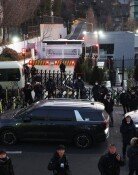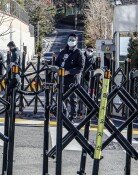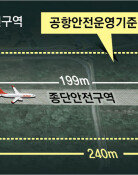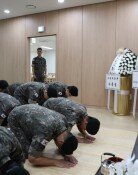S. Korea prepares to monitor N. Korean military activities amid POW concerns
S. Korea prepares to monitor N. Korean military activities amid POW concerns
Posted October. 31, 2024 08:03,
Updated October. 31, 2024 08:03

A high-ranking official in the South Korean presidential office stated on Wednesday, “We feel the need to prepare to send a team in advance to analyze the activities and situation of the North Korean army (deployed locally).” This comment relates to the plan to send a “monitoring team” to Ukraine to gather information on the North Korean army, following reports that the North Korean forces stationed in Russia may be deployed to the front lines. National Intelligence Service Director Cho Tae-yong also remarked during a state audit that the monitoring team presents “a golden opportunity to understand the capabilities of the North Korean army.”
The government has not disclosed the team's composition or role, stating that it has yet to decide whether to send the monitoring team. However, if deployed, there is significant interest in the possibility of directly interrogating North Korean POWs captured on the battlefield, a sensitive issue.
According to a comprehensive analysis by The Dong-A Ilbo, experts well-versed in international humanitarian law suggest that the monitoring team may struggle to directly interrogate North Korean prisoners of war. If a South Korean intelligence agency—unaffiliated with the conflict—were to conduct such interrogations, it could trigger controversy over potential violations of international law, characterized as “an act without authority.”
“Since interrogating prisoners of war is the right of a party to the conflict, South Korea, which is not a party to the conflict, does not have the authority to interrogate or observe in principle," a diplomatic source noted. Professor Lee Yong-ho of Yeungnam University, a former president of the Korean Association of International Law, said that providing an “assistant” role, such as interpretation, might be feasible.
고도예 기자 yea@donga.com







